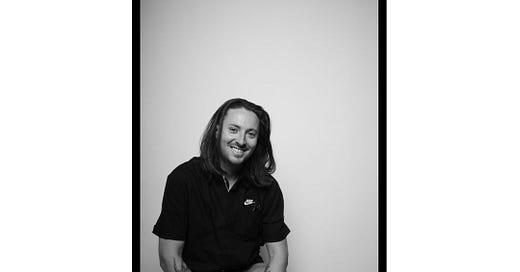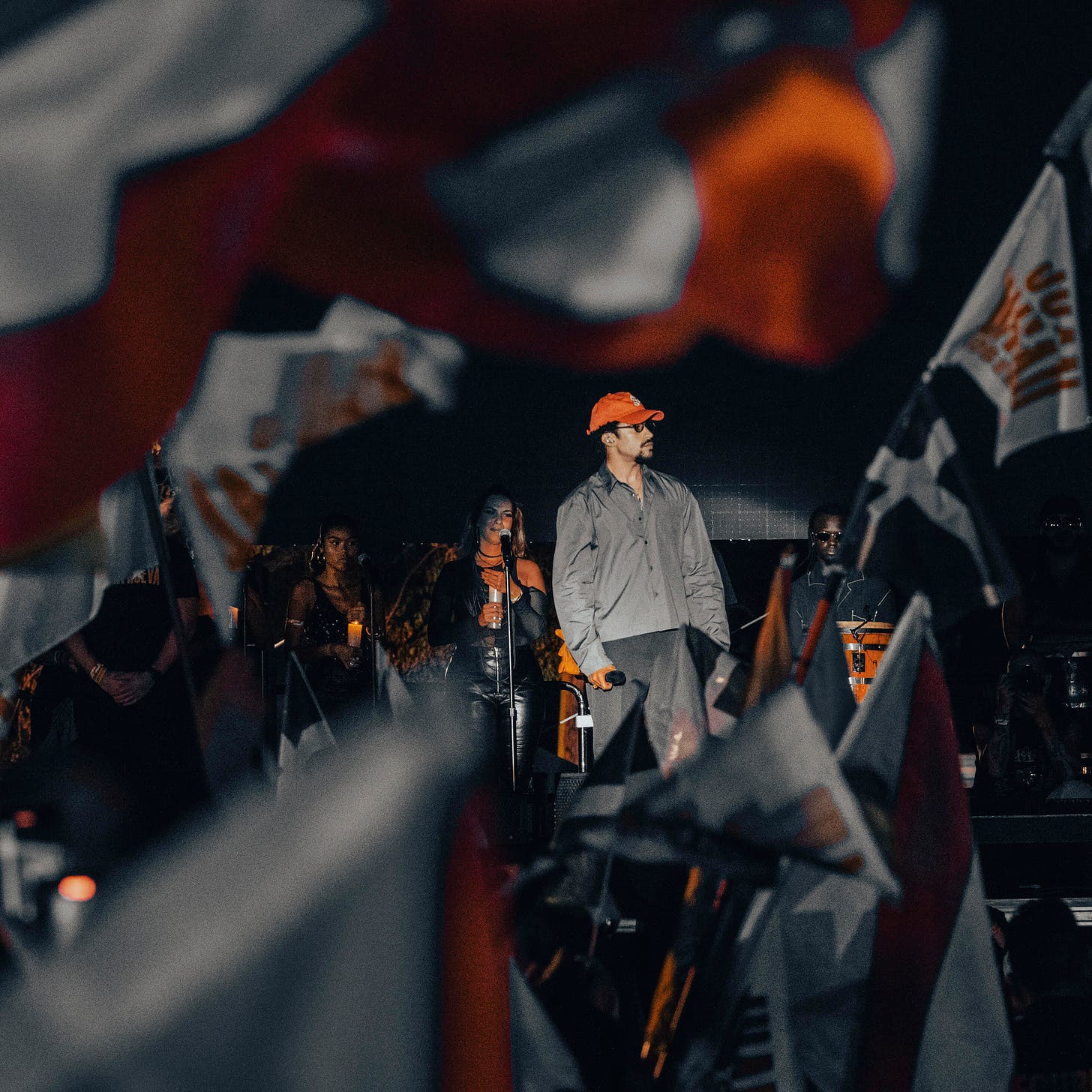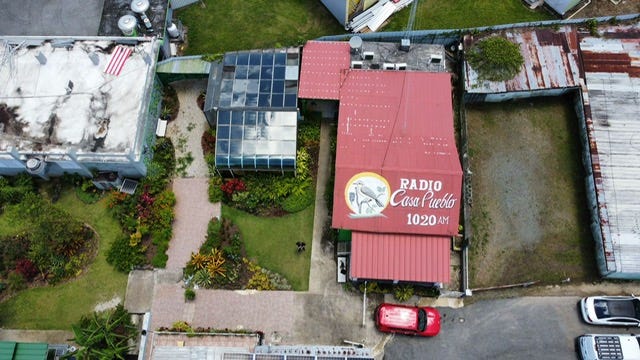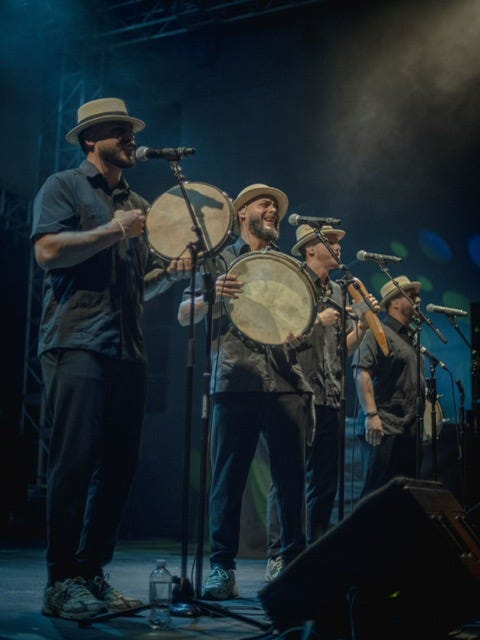The Lens as a Bridge: An Interview with Jesse Kornbluth
My interview with Jesse, a documentary photographer based between Brooklyn and San Juan.
I came across Jesse’s work in February after a long day of travel and sightseeing in Kingston, Jamaica. At the National Gallery of Jamaica I came across the exhibition Kingston Biennial 2024: Green x Gold. The exhibition dealt with the “constructed depiction of Jamaica and the Caribbean as ‘paradise’, which is seen largely in tourism marketing, and contrasts it with ecological [and social realities] that are less publicised” (National Gallery of Jamaica Blog.) The exhibition argued that the tourism industry centers the comfort and relaxation of tourists in the context of exploitative and violent structures that maintain these realities. This is not a new idea to me and yet it’s striking, and encouraging that a conversation like this is happening at a major public art exhibition.
Kingston was a quick trip and I was crashing at a friend of a friend’s gorgeous green oasis up in the blue mountains. The mountains were breezy and cool, inviting me to kick my feet up and reflect on my Jamaica trip. I was scrolling through Instagram and came across Jesse Kornbluth’s Instagram (@kornbluth), first drawn in by his pinned image of Bad Bunny wearing pilot sunglasses with a missing lens, later deep diving into some of the social and political topics he engages with. That night Jesse’s IG stories were about Carlitos, a Puerto Rican man killed by a tourist driving drunk in April 2024 on Vieques Island. The suspect fled the scene, abandoned the rental vehicle on the side of the road and left the island. Carlitos’ family is still awaiting justice.
Fury boiling in my chest and I decided to respond to Jesse’s IG story, sharing disgust of a racist and colonial system that would allow a murderer to flee the scene, especially given the context of all the bad tourist behavior on the island in the last few years. I am also curious - I don’t see a lot of Americans engaged with the happenings in PR, and PR’s current and historical colonial status isn’t necessarily well known nor written about. I find it refreshing to chat with Jesse and so I ask him if he would do an interview with me; he kindly agrees.
–
Jesse is in the Italian Dolomites, in the middle of a 200 km hike through the mountains when we chat. It’s evening - about 8 pm Italian time. We connect over Zoom.
He seems tired, but full of enthusiasm for the topics that are dear to his heart (I would be tired too after all that hiking). Jesse is a self-described “Jewish New Yorker” and I can tell - he’s straight forward and says what’s on his mind even though we just met.
Jesse says he was drawn to the Dolomites hike by a grassroots program put on by local conservationists and activists in the DIY spirit of “we are going to take it upon ourselves independently, to protect our natural landscape, to help stimulate local economies and to preserve our culture,” Jesse explains. In the context of Trump’s administration defunding national parks, as well as other environmental protection agencies, this journey provides “an opportunity to tell a story that shows Americans how, in the face of a dereliction of duty from the government,” how can we protect our natural world on a community level?
I ask him about his background and Jesse clarifies that he’s a “Jewish New Yorker who's the grandson of refugees,” which has shaped his approach to academics and career choices.
All of Jesse’s grandparents are immigrants to America. He shares, “My mom's parents came fleeing the Soviet Union…My grandparents are all Jewish. And my dad's parents are Holocaust survivors from Poland.”
Informed by this experience, Jesse’s professional work deals with “diaspora communities, their homelands, and how culture and traditions are reinvented and reshaped in a modern context,” he shares.
Even though I am not a product of refugees I can relate to this as a biracial woman that has studied the avenues through which we maintain and assert our cultural traditions in mixed and multiracial families, food being a major avenue of cultural survival.
—
After he finished his MA in International Administration, Jesse got a graduate internship at the Brookings Institution, becoming a generalist, like a “Swiss army knife,” he paints the picture, “I was doing some research, I was doing some writing, I did some fundraising, I did some comms, a little bit of everything. I ran an internship program, so a lot of different things.” When COVID hit he was working in US foreign policy mainly focusing on human rights. While he enjoyed the work, he started to feel that his impact was limited.
Jesse recalls Covid times: “coalescence of social movements happening at once in DC. I would go out, leave work and I would take my small camera, or even just my phone, and photograph what was happening. I was in the crowd on June 1 - It was primarily a Black Lives Matter protest outside the White House, and I ran down, and I just started photographing. There was a sense of danger, because Trump had called the National Guard, and there were all sorts of federal forces, you know, lined up face to face with these protesters, dressed in full riot gear.”
As Jesse shared this I immediately remembered Summer 2020, marked by a sharpened collective consciousness, where we watched the most vulnerable fight for their lives, and re-examined what life could be. Many of us took a breath, found time to rest, and saw systemic inequities more clearly — reflecting on the reality that things don't have to be this way.
Jesse recalls June 1, 2020 when Trump ordered the National Guard “to clear the crowd by firing rubber bullets and tear gas, and beat the shit out of all the protesters. And I was in the crowd, I got tear gassed, and I got photos of it.” Jesse recalls that “Vice News got a hold of some of some of the photos, and then interviewed me and used some of my photos in a documentary about that day.” That day Trump walked across the street and he held the Bible upside down in front of a church. At that point Jesse realized that if he put some time and effort into photography and writing that he might be able to pull this off as a career.
Jesse shares he’s always loved photography and dreamt of being a photojournalist who could “impact the world in a positive way through photography, documentary photography, photojournalism…So anytime that I was doing anything meaningful to me, I always had my camera with me.”
Jesse’s Connection and Reflections on PR
Jesse always had a relationship with Puerto Rico, as his grandparents settled in Puerto Rico. He explains, “It has always had a really special place in my heart. It made me more conscious of Puerto Rican culture, the diaspora community in New York.”
Then Jesse met his ex partner in DC, who is Puerto Rican and grew up in Puerto Rico. “We lived together, and COVID hit, and obviously that means we're spending a lot more time together. Our little apartment in DC became like a little slice of Puerto Rico,” he reminisces.
Jesse and his then partner, “went to the ‘Ricky Renuncia’ protests in 2019,” where thousands protested Governor Ricardo Rosselló, including Bad Bunny, following the exposure of his corruption. Jesse shares he “really experienced this heart and soul of Puerto Ricans and the Puerto Rican diaspora coming together to create social change. And they effectively protested a Puerto Rican Governor out of office!” At that time Jesse also started to question his own relationship with Puerto Rico, as “an American citizen coming from New York, not ethnically Puerto Rican.”
To me this brought up questions of not only what it means to feel a connection with a place and not be from there, but also, the ways folks can be connected thematically to a group or location through parallel experiences. It makes me think about the ways empathy develops for others, and what the conditions are. I think about research that shows reading less fiction may correlate with a decline in empathy - engaging with fictional narratives, particularly those that transport readers emotionally, can enhance empathy. I believe this is also true for nonfiction, especially if we are not sanitizing stories.
This conversation also brought up the idea of responsible tourism for me, reminding me of concerns I’ve had about traveling to places where tourism is a major part of the economy. What does it mean to appreciate and support a place — or a community — as an outsider? What does it mean to come correct?
—
Jesse spent last year at the International Center of Photography (ICP) in the documentary photography program. He’s on a journey to elevate his work, as he shared, “When I got there (ICP) I thought my work was great. And then I realized that I sucked…I needed to learn how much I suck in order to get better. And that's, that's, that's where I'm at now, trying to make work that doesn't suck and that has an impact.” I appreciate the raw humility here; this is the type of context that gets us to the next level of a craft.
At ICP Jesse was focusing on two main stories - “One is about Puerto Rico and the other one is about my grandparents' journey to The States, and this whole idea of being stateless. And the more I got into my own family story, the more I kind of understood the feeling of being Puerto Rican, like literally a people who are, who are stateless…who kind of exist in this liminal state where you’re American enough to pay taxes and be highly encouraged to join the military, but not American enough to vote. You're not American enough to be the author of your own fate…You don't have the freedom that the average American has, because you don't get a say in who is making your laws for you outside of the island,” he unpacks.
Jesse and I reflect on the fact that we only learn about the United States in the context of being a hero, never an oppressor. And if there was ever any oppression, we are taught that those wrongs have been corrected without much struggle, as if the direction of the moral compass was already clear. This evokes James Baldwin’s quote “American history is longer, larger, more various, more beautiful, and more terrible than anything anyone has ever said about it.”
We never really learn about America's exploits across the world, nor “how we wiped out an indigenous population in Hawaii to establish a state, and you know that Puerto Rico is the world's oldest colony, and it's an American colony. We very conveniently call it a territory, but if you look at the mechanics of Neo colonialism, it's exactly what Puerto Rico is,” noting that there are few academic classes that touch on the political and economic status of Puerto Rico. Jesse adds, “so few people are aware of the situation in Puerto Rico.” Some even think you need a passport to get there.
And Jesse points out that “As long as there has been a colonial presence in Puerto Rico, there has been a strong independence movement countering it. Recently, this movement has seen a powerful resurgence, driven by opposition to government corruption, unjust federal laws, natural disaster mismanagement, and rapid gentrification from the mainland in the wake of tax laws geared toward outside investment.”
“I want to help elevate the voices of Puerto Rican photographers and journalists as much as I possibly can. I recognize that as American citizen from New York, I have a privilege - and therefore a duty - to help reach these important stories reach audiences on the continental United States. Many Puerto Rican journalists are doing world class investigative work. But US-based media gatekeepers - deliberately or not - have yet to consistently include these journalists into their mainstream reportage. Many independent journalists in Puerto Rico are doing the work. Bianca Gralau, Jay Fonseca, Debbie Perez… I could go on and on,”
Jesse sees his obligation to share more information about the realities in PR, so that people from his community can see what's happening and “put pressure to actually change things. Puerto Ricans are going to keep doing their job. They're going to keep protesting…Americans who are concerned, and Americans who have the ability to vote need to meet them halfway,” he shares.
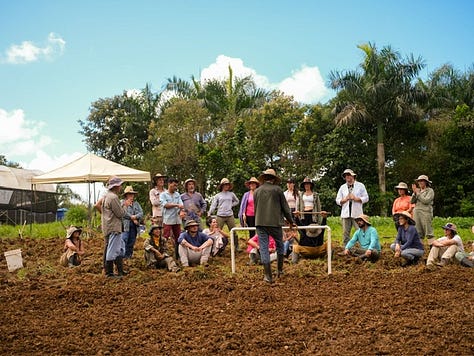

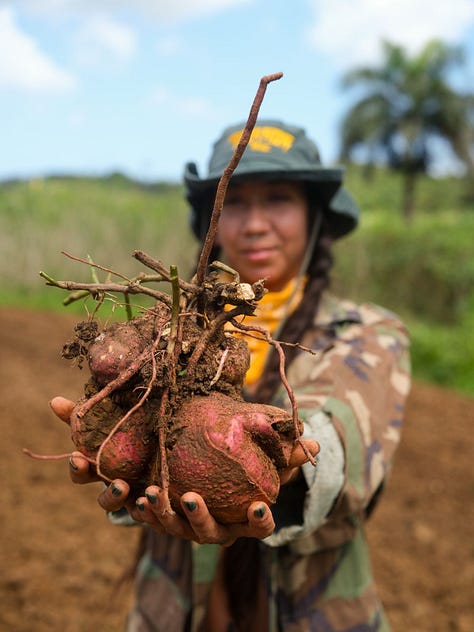
Jesse’s recent work in Puerto Rico looks at the “ways in which Puerto Ricans express and fight for their independence through cultural means when there’s no political option on the table. The activist musicians, farmers, chefs, environmentalists, students, engineers, and artists leading the way toward a more independent future.” Jesse mentions Los Pleneros de la Cresta, Casa Pueblo, El Josco Bravo, Bacoa, Radio Casa Pueblo, Chuwi, to name just a few.
__
There are systemic barriers to publishing about Puerto Rico in major news outlets. Jesse doesn’t necessarily blame outlets like the New York Times, saying, “it's kind of a chicken and egg situation, where it's like, they don't necessarily think that there's interest, but why is there no interest?” He continues - with any large media outlets “it's usually hard to get an answer from editors, period ever. They might say ‘It's a good story. We don't really know where it fits. Thank you for sending it.’”
Jesse saw the same patterns at Brookings, “We don't know how to talk about Puerto Rico. We don't know what category Puerto Rico belongs in - is it national? Is it International? Is it politics? Is it culture? So most of the time Puerto Rico ends up get getting talked about in the culture section, or in the Travel section…the culture section that talks about Bad Bunny’s album and how it's a protest album, then you can glean some snippets of information about Puerto Rico’s status, but it's not going to be on the front page.” Jesse has “reached out to more US mainland news outlets that I can count about the [Carlitos] Vieques story. None. None are interested.”
–
At the core, Jesse says his work “is trying to challenge prevailing systems of power.”
Given this ethos, I ask Jesse how he’s feeling about the current political climate and his work.
“Fucking scared to be honest with you.” He elaborates the context that he is seeing “I think we're living in a post truth world where at least the American media, and actually probably all media, prioritizes speed in reporting over facts.”
One thing this administration is really good at is getting in front of people and the media — and using fear to control the narrative, “MSNBC and CNN and the New York Times and The Washington Post and NPR are going to get that message out to all of their progressive audience that this is what happens when you criticize. They want these outlets to report on it, so that you know people like you and I are afraid to speak up,” he elaborates.
Jesse self-funds many of the projects he’s passionate about, supplementing his income by shooting weddings or events in New York so he can afford to pursue the work he truly cares about. It’s interesting — I often think about how lucky I’ve been to get paid to do the systems change work I love. But now that work is under attack, and it’s uncertain whether I’ll be able to continue in the same way I have over the past five years.
I could talk to Jesse for hours but I know it’s getting late for him and he’s got another long day of hiking in the morning. I thank him for his time and promise to stay connected.
—-
This conversation affirms a few things for me. First — and it sounds so simple — there is immense power in storytelling. It’s crucial for building empathy across identities and ideological lines. We are more similar than we realize. As a systems change professional and educator, this isn't surprising to me, but I’m always fascinated by the ways we build bridges and share more of ourselves.
I’m equally interested in the power of the media — and who gets space to tell their stories. In another lifetime, I thought about becoming a journalist. Now, with the relaunch of Some Context as a kind of publication, the pull toward print feels especially important.
If all we can do is move toward small but mighty communities rooted in connection, accountability, and imagination, that collective might have a bigger impact than we realize.
Meanwhile, art, music, and photography continue to hold crucial space — not just for raising awareness and promoting empathy, but specifically for amplifying ongoing struggles in Puerto Rico and beyond.
—Nicole
—
For more information check out these resources:


